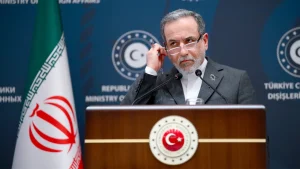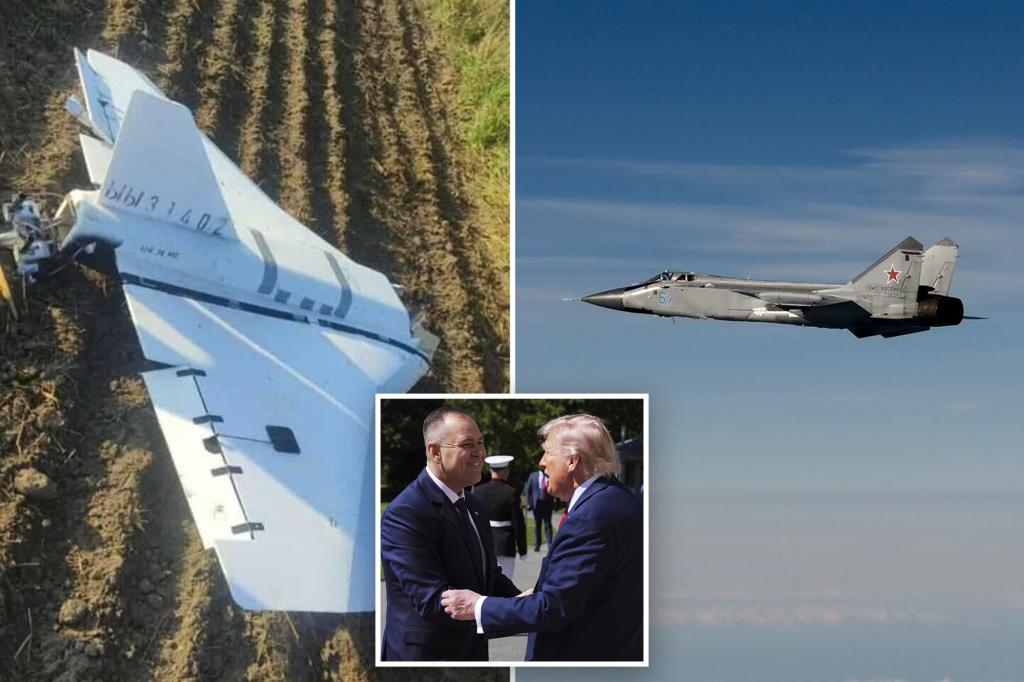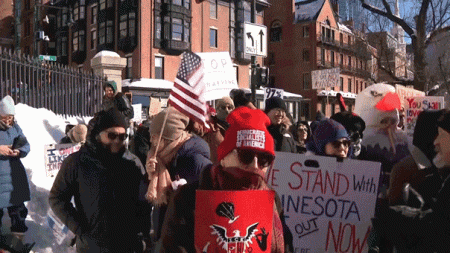Trump Pledges Defense of NATO Allies Amid Rising Russian Incursions
In a significant statement of solidarity with America’s European allies, President Donald Trump affirmed on Sunday that the United States would defend Poland and the Baltic nations if Russia’s increasingly provocative actions continue to escalate. Speaking to reporters on the White House lawn before departing for the funeral of conservative figure Charlie Kirk in Arizona, Trump responded directly when asked if America would defend these NATO members against Russian aggression: “Yeah, I would. I would.” The President also confirmed he had been briefed on the most recent tensions involving Estonia, expressing disapproval with a straightforward “Yeah, we don’t like it.” This commitment comes at a critical moment as several NATO members along Russia’s western border report concerning military incursions into their sovereign airspace.
The situation has grown increasingly tense in recent weeks, with Estonia reporting on Friday that NATO forces had intercepted three Russian MiG-31 fighter jets that entered its airspace without authorization and remained there for approximately 12 minutes. Russia, following a familiar pattern, promptly denied any wrongdoing, insisting that its flights were conducted “in strict accordance with international rules” and “without violating the borders of other countries.” This disputed incursion came shortly after Poland had already consulted with NATO allies regarding multiple breaches of its own airspace by Russian drones and fighter jets the previous week. The pattern of provocations appears deliberate and coordinated, raising concerns about Russia’s intentions toward these former Soviet-controlled territories that now stand as independent NATO members.
The scope of these incursions is particularly alarming. On September 9, Poland reported that between 19 and 23 Russian drones entered its airspace, with Polish forces successfully shooting down at least four of them. Days later, Romania also claimed that a Russian drone violated its airspace. The significance of these intrusions cannot be overstated—all three countries are full NATO members, meaning that a direct attack against any of them could potentially trigger Article 5 of the NATO treaty, which commits all alliance members to collective defense. For Estonia, Poland, and Romania, nations that lived under Soviet domination either as republics or satellite states during the Cold War, these violations likely evoke historical memories of Russian aggression and control. Their current membership in NATO represents both their hard-won independence and their security guarantee against future Russian expansionism.
President Trump’s unequivocal statement of support for these allies marks a notable evolution in his stance toward NATO. Throughout his presidency, Trump has frequently expressed frustration with alliance members not meeting their agreed-upon defense spending targets of 2% of GDP. However, his recent comments suggest a growing recognition of NATO’s strategic importance in containing Russian aggression in Eastern Europe. In fact, Trump has recently been advocating for the alliance to take stronger economic measures against Russia, specifically pushing for coordinated tariffs or sanctions on countries that purchase Russian oil—a key source of funding for Moscow’s military operations against Ukraine. This approach reflects Trump’s preference for economic pressure rather than direct military confrontation, while still demonstrating a commitment to opposing Russian expansionism.
The Baltic states—Estonia, Latvia, and Lithuania—clearly value American security guarantees, having recently appealed directly to Congress to maintain funding for the Baltic Security Initiative program amid reports that the White House might propose cuts. In a joint letter from their parliaments, they wrote: “We kindly ask you to support the funding of the Baltic Security Initiative in the fiscal year 2026 Defense Appropriations Bill and its authorization in the National Defense Appropriation Act.” This appeal underscores the vital importance these small nations place on American support as they face an increasingly assertive Russia on their borders. Their historical experience with Russian domination gives them particular sensitivity to any signs of renewed aggression from Moscow, and American security guarantees serve as their primary deterrent against potential future incursions.
These developments come just weeks after Trump met personally with Russian President Vladimir Putin to discuss potential paths toward ending the war in Ukraine. The timing of Russia’s aggressive actions against NATO allies following this high-profile meeting raises questions about Putin’s interpretation of American resolve. Even more concerning, the Kremlin has simultaneously intensified its offensive operations in Ukraine since the Trump-Putin discussion took place. This pattern of behavior suggests that despite diplomatic engagements, Russia continues to test the boundaries of what it can do without triggering a more forceful Western response. President Trump’s latest statements appear designed to establish clear red lines regarding NATO territory, signaling to Moscow that regardless of ongoing discussions about Ukraine, the United States remains committed to defending its treaty allies against Russian aggression. As these tensions continue to evolve, the strength and clarity of the Western alliance’s response will likely determine whether Russia’s provocations escalate further or recede in the face of unified opposition.











